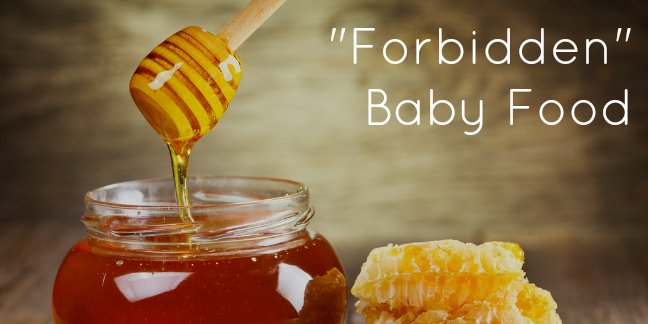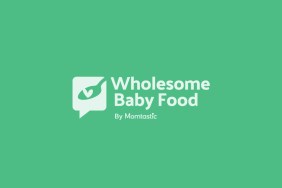Are there foods that should be delayed when introducing solids to your baby?
As late as 2008, there were many “forbidden foods” that pediatricians recommended a baby should not have until he reached a certain age. These forbidden baby foods included egg whites, peanut butter, shellfish, crustaceans and citrus. As of 2012, the guidelines have firmly changed; “forbidden foods” are no longer off the table!
In a recent interview with Dr. Jatinder Bhatia, neonatologist and chair of the American Academy of Pediatrics’ Committee on Nutrition, Dr. Bhatia noted that, “There is no evidence that the introduction of any sequence of foods is better than any other.”
Many foods are listed as they may pose a certain health risk but not necessarily an allergy risk. You may find some items not listed as these items pose neither an allergy risk nor do they pose an immediate health risk (i.e. sugar and salt – though sugar and salt should not be added to baby’s meals.) Read more about Baby Food and Allergies
Is this chart really relevant and is there a need for “forbidden foods” since the AAP report (and others) came out in 2008?
In 2008, the AAP released a clinical report entitled Effects of Early Nutritional Interventions on the Development of Atopic Disease in Infants and Children: The Role of Maternal Dietary Restriction, Breastfeeding, Timing of Introduction of Complementary Foods, and Hydrolyzed Formulas
There are many who believe that due to this clinical report, there is no longer a need to delay any foods, of any kind, when beginning to introduce solid foods to babies. The report notes the following:
“Although solid foods should not be introduced before 4 to 6 months of age, there is no current convincing evidence that delaying their introduction beyond this period has a significant protective effect on the development of atopic disease regardless of whether infants are fed cow milk protein formula or human milk.
This includes delaying the introduction of foods that are considered to be highly allergic, such as fish, eggs, and foods containing peanut protein.”
![]() The AAP states in its clinical report that:
The AAP states in its clinical report that:
“In summary, the evidence from these conflicting studies, in balance, does not allow one to conclude that there is a strong relationship between the timing of the introduction of complementary foods and development of atopic disease. This raises serious questions about the benefit of delaying the introduction of solid foods that are thought to be highly allergic (cow milk, fish, eggs, and peanut-containing foods) beyond 4 to 6 months of age; additional studies are needed.”
The report, and others released since 2008, does not state nor does it recommend that solid foods of any kind be introduced earlier than 4-6 months of age. The AAP also goes on to say that “Nor is there sufficient evidence that any dietary intervention after 4-6 months of age prevents allergic disease. This includes delaying the introduction of complementary foods.”
![]() You will continue to find pediatricians differing on their recommendations; some pediatricians remain cautious while others give the green light to any food at any age.
You will continue to find pediatricians differing on their recommendations; some pediatricians remain cautious while others give the green light to any food at any age.
So what exactly does this mean, can I give my 7 month old peanut butter?
It is most important that you discuss introducing possible allergenic foods with your baby’s pediatrician. The bottom line is that peanuts and eggs have not been proven safe for infants prior to 12 months or older; nor have these items in particular been proven unsafe. It is interesting to note a 2009 study regarding peanuts that has prompted the medical community to give more thought as to how children are introduced to peanuts in particular.
In the 2009 a study published in the AAP’s Pediatrics journal “Early Consumption of Peanuts in Infancy Is Associated With a Low Prevalence of Peanut Allergy it was found that Israeli infants and children have fewer peanut allergies than their United Kindgom counterparts. One possible reason is that Israeli children are introduced to peanuts in infancy. “This study demonstrated a strong inverse association between peanut consumption in infancy and the prevalence of PA [Peanut Allergy] in childhood. It is compelling that the early introduction of frequent and high doses of peanut protein in infants may lead to oral tolerance. Although there is inherent selection bias and recall bias with questionnaires in general, the authors of this study attempted to reduce both of these factors. Until recently, dietary avoidance of peanut during pregnancy, breastfeeding, and early childhood was recommended in the United States. This article prompts us to question our practices and recommendations in terms of introduction of peanut into our children’s diet and how it may affect their propensity to develop PA.”
This forbidden food chart will remain on Wholesome Baby Food for those parents interested in learning about what foods may pose issues – and for posterity. Several of the recommendations on the chart are there because delaying the introduction of certain foods is not due to possible allergic reactions. These recommendations are due to other possible health risks. As we mentioned prior, many foods listed should not be given until a certain age due to possible health issues:
- Honey for example, could cause prompt infant botulism due to the immaturity of a baby’s intestinal tract.
- Whole milk should not be introduced as a replacement for breast milk or formula until after 12 months. This recommendation is due to the fact that whole cow milk cannot properly sustain a growing infant. It simply does not have all the nutritional components needed for healthy growth and development. There is also a bit of difficulty in the digestion of whole milk proteins. Yogurt and cheese are cultured and thus tend to be more easily digested.
- Citrus is very acidic and many infants under the age of 12 months old suffer rashes and tummy upsets due to the acidity. This has nothing to do with allergies.
- Strawberries and Shell Fish, and even Peanuts, can prompt severe, life threatening allergic reactions. The recommendation continues to be one of caution and delay.
- Here are a few other examples of why it might be prudent to delay the introduction of certain foods. Broccoli for example is known to cause gas in many people. Offering broccoli to an infant who is 6 months of age is really not a good idea. You may not want offer a 6 month old baby beans either, as these too may cause painful gas.
Common foods that, traditionally, should wait to be introduced to baby until baby has reached a certain agePlease note “recommendations changed” or “unchanged” status considering new studies |
|
|---|---|
| Honey (not an allergen but may cause botulism in infants under 1yr old) | After 1 year recommendation unchanged |
| Peanut Butter | After 1 or 2 years*recommendations changed–anywhere from 6 months to 2 years old |
| (Tree) Nuts(also may pose a choking hazard) | After 1 or 2 years*recommendations changed–anywhere from 6 months to 2 years old |
| Citrus or Acidic Fruits Not an allergen but may cause rash & digestive upset due to acidity. Using a dash of lemon or pineapple juice in a whole fruit puree is NOT the same as giving a baby pureed or sliced oranges, pineapple et al.Just because a fruit, like tomato, is not in the citrus family does not mean that it is not acidic | After 1 year recommendations changed– anywhere from 6 months to 12 months |
| Raw Strawberries, Raspberries, Blackberries – learn about why processed strawberries may not pose an allergy risk(Blueberries and Cranberries are NOT included in this) | After 1 year**recommendations changed–anywhere from 6 months to 12 months |
| Corn(possible allergen and not very nutrient rich) | After 1 yearrecommendations changed– anywhere from 6 months to 12 months |
|
Egg Whites (many pediatricians will say it is fine for an older infant to have baked goods that include whole eggs) |
After 1 yearrecommendations changed- anywhere from 6 months to 12 months |
|
Whole Milk – as a drink Lactose and milk proteins may cause allergic reactions and may also cause tummy troubles as they are hard to digest – yogurt and cheese are exceptions. Milk also hinders proper absorption of iron; iron is crucial during the 1st year |
After 1 year recommendations unchanged |
| WheatMany suggest that for the infant who has had no issues with gluten in Oats and/or Barley, and who has no history of wheat allergy or gluten intolerance, that offering wheat products (such as wheat toast) is fine around 8+ months – Read more at our topic Wheat for Baby | After 9-10 months or 1 yearrecommendations changed- anywhere from 6 months to 12 months |
| Grapes(not a high allergen but may pose a choking hazard – use extreme caution if offering your older infant or toddler grapes) | After 10 months or 1 year ** |
|
Shellfish/Crustaceans (may be a high allergen) |
After 1 or 2 years ***recommendations changed– anywhere from 6 months to 12 months |
* Peanuts and Tree Nuts have varied age recommendations for introduction.
Typical ages for introduction are:
After One (1) Year for the Non Food Sensitive/Non-Allergic Child;
After Two (2) or Three (3) Years for the Food Sensitive/Allergic Child.
Some Medical Authorities even suggest holding off Peanuts and Tree Nuts until after Seven (7) Years old. You should introduce these items with the consultation and recommendation of your baby’s Pediatrician.
![]() Peanuts and Tree Nuts Please ask your pediatrician about introducing peanuts and tree nuts to your baby! Reactions to these food items may be deadly.
Peanuts and Tree Nuts Please ask your pediatrician about introducing peanuts and tree nuts to your baby! Reactions to these food items may be deadly.
![]() Recommendations for introduction of peanuts and tree nut have changed to anytime from 6-12 months.
Recommendations for introduction of peanuts and tree nut have changed to anytime from 6-12 months.
** Strawberries Please note that the current recommendation for introducing strawberries was after a baby has reached 12 months of age. Commercial Stage 2 baby foods contain strawberries because it is said that processing strawberries at such a high temperature “kills” the protein that causes the allergic response. Visit our Strawberry page to learn more.
![]() Recommendations for introduction of [fresh] strawberries have changed to anytime from 6-12 months.
Recommendations for introduction of [fresh] strawberries have changed to anytime from 6-12 months.
** Grapes are not a high allergen but may pose choking hazards. Visit our Grape page to learn about ways to safely offer your baby grapes.
*** Shellfish/Crustaceans introduction depends on a baby’s history of food allergies as well as the family’s history of food allergies.
![]() Recommendations for introduction of fish and shellfish have changed to anytime from 6-12 months. Please ask your pediatrician as shellfish reactions may be deadly.
Recommendations for introduction of fish and shellfish have changed to anytime from 6-12 months. Please ask your pediatrician as shellfish reactions may be deadly.
![]() The Forbidden Foods chart, and accompanying information, is not to be taken as a replacement for advice given from your baby’s pediatrician.
The Forbidden Foods chart, and accompanying information, is not to be taken as a replacement for advice given from your baby’s pediatrician.
As with the solid food charts, this forbidden baby food chart is somewhat conservative in nature compared to guidelines from other sources. It has been researched and compiled from various medical authorities such as private pediatricians, the AAP, the AAFP, and the WHO. Remember, always consult with your pediatrician regarding introducing solid foods to your baby and specifically discuss any foods that may pose allergy risks for your baby.
More Resources/Studies:
- German Study “This study found no evidence supporting a delayed introduction of solids beyond 4 or 6 months for the prevention of asthma, allergic rhinitis, and food or inhalant sensitization at the age of 6 years.”
- Dairy Introduction past 9 months” More delay in introduction of cow milk products was associated with a higher risk for eczema.”
- ESPGHAN study “Exclusive or full breast-feeding for about 6 months is a desirable goal. Complementary feeding (ie, solid foods and liquids other than breast milk or infant formula and follow-on formula should not be introduced before 17 weeks and not later than 26 weeks. There is no convincing scientific evidence that avoidance or delayed introduction of potentially allergenic foods, such as fish and eggs, reduces allergies, either in infants considered at increased risk for the development of allergy or in those not considered to be at increased risk.
- Finnish Study – Late Introduction of Solids “Late introduction of solid foods was associated with increased risk of allergic sensitization to food and inhalant allergens. Eggs, oats, and wheat were most strongly related to food sensitization, whereas potatoes and fish were most strongly related to inhalant sensitization.


